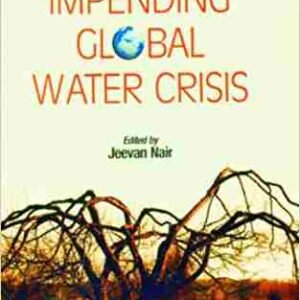Only logged in customers who have purchased this product may leave a review.
Sale!
Agrarian Landscapes in Transition (Hardback) | Released: 01 Jul 2008
By: David R Foster (Author) Publisher: Oxford University Press, USA33.00% Off Original price was: ₹4,958.00.₹3,322.00Current price is: ₹3,322.00.
You save ₹1,636.00
Agrarian Landscapes in Transition researches human interaction with the earth. With hundreds of acres of agricultural land going out of production every day, the introduction, spread, and abandonment of agriculture represents the most pervasive alteration of the Earth’s environment for several thousand years. What happens when humans impose their spatial... Read More
In stock
Ships within 1-2 Business Days

100% Orginal Books

Easy Replacement

Certified product

Secure Checkout

On time delivery
Author:
![]()
David R Foster
Publisher Name:
![]()
Oxford University Press, USA
Language:
![]()
English
Binding:
![]()
(Hardback)
About The Book
Agrarian Landscapes in Transition researches human interaction with the earth. With hundreds of acres of agricultural land going out of production every day, the introduction, spread, and abandonment of agriculture represents the most pervasive alteration of the Earth's environment for several thousand years. What happens when humans impose their spatial and temporal signatures on ecological regimes, and how does this manipulation affect the earth and nature's desire for equilibrium? Studies were conducted at six Long Term Ecological Research sites within the US, including New England, the Appalachian Mountains, Colorado, Michigan, Kansas, and Arizona. While each site has its own unique agricultural history, patterns emerge that help make sense of how our actions have affected the earth, and how the earth pushes back. The book addresses how human activities influence the spatial and temporal structures of agrarian landscapes, and how this varies over time and across biogeographic regions. It also looks at the ecological and environmental consequences of the resulting structural changes, the human responses to these changes, and how these responses drive further changes in agrarian landscapes. The time frames studied include the ecology of the earth before human interaction, pre-European human interaction during the rise and fall of agricultural land use, and finally the biological and cultural response to the abandonment of farming, due to complete abandonment or a land-use change such as urbanization.About the Author: Charles L. Redman is the director of the School of Sustainability, the Virginia M. Ullman Professor of Natural History and the Environment at Arizona State University, and co-director of the Central Arizona Phoenix Long-Term Ecological Research site. David R. Foster is an ecologist and director of the Harvard Forest at Harvard University, where he is a faculty member in the Department of Organismic and Evolutionary Biology and principal investigator for the Harvard Forest Long-Term Ecological Research site.










Reviews
There are no reviews yet.